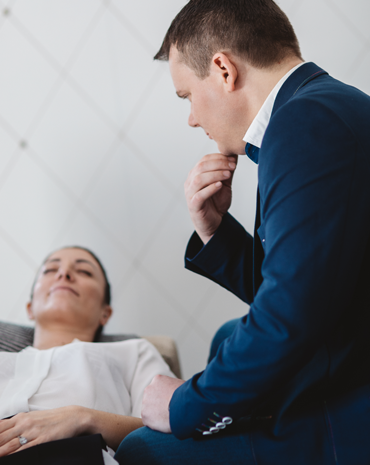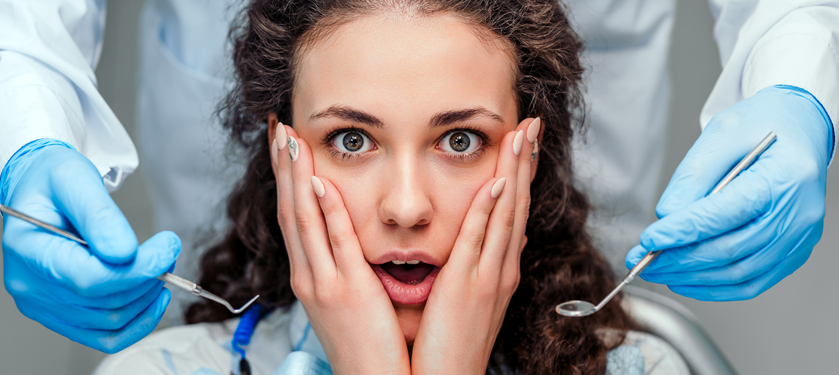A phobia or fear is a disorder that causes extreme, unreasonable fear about any specific situation, living creature (such as an animal), place, or object.
When a person is suffering from phobia or fear, he/she experiences intense distress when he/she faces the source of fear or phobia. According to the people suffering from phobia or fear, their imagined threat is much greater than the actual threat.
Phobias are quite common and only in the USA approx. 19million people are suffering from fear or phobia. But, luckily, the fear or phobia is treatable and diagnosable disorder.
Symptoms of fear or phobia
People who are suffering from fear or phobia feel the symptoms when they come into the contact with their phobia, but in severe conditions, they can feel the symptoms from just thinking about the fear or phobia.
Normally, when people come in contact with the source of fear or phobia, they get extremely scared, worried and anxious. There some other physical symptoms of fear and phobias, like:
- Dizziness
- Excessive Sweating
- Abnormal heartbeat
- Nausea
- Shaking
- Digestion problems or upset stomach
Specific phobias
Specific or simple phobias centre around any particular animal, object, state or activity. Normally the specific phobias start to develop in youth and become less severe as we age.
Some common examples include:
- Animal phobias (e.g. Fear from lizards, snakes or dogs)
- Environmental phobias (e.g. Fear from height, germs, or open water)
- Situational phobias (e.g. Fear from flying or going to the dentist)
- Bodily phobias (e.g. Fear from blood)
- Other (e.g. Fear from food items or their shapes)
Tips for Treating Your Phobia or Fear
If you are experiencing fear or phobia, the best thing would be to consider working with an expert. Additionally, here are some tips that have helped many and we found them effective in treating fear or phobia:
Sit with your Phobia or Fear
Sit with your phobia or fear for 2-3 minutes daily. Breathe and feel that all is well. It feels useless but fear or phobia is just mental disorder and running from it is useless as well.
Do something that you love the most immediately after the sitting period. Call your friends or engage yourself in any healthy activity.
Exercise
Workout helps to reframe your mind. Whether you go on a long walk, head to a gym for an intense workout session, or do a 20-minute yoga at home, exercise is always good as it helps you to feel that you are more capable.
Healthy eating
Eat lots of healthy stuff like fruits and vegetables, and avoid sugar and caffeine. Dips in your blood sugar make you nervous or anxious. Don’t drink too much tea or coffee, as caffeine increases the level of anxiety.
Avoid alcohol
It’s very common to drink too much when you are anxious or nervous. For some people alcohol is the ‘Dutch courage’, but it is also a fact that alcohol makes you more afraid and nervous.
Faith/spirituality
If you are religious, this allows you to connect with something that is much bigger than you. Faith is an effective way of managing stress, and attending church regularly can connect you with beneficial and supportive people.
In the end
Be your best friend. What guidance will you give to your friend who is suffering from fear or phobia or want to treat phobia or fear? Do exactly the same and be your best friend.
Lastly, phobia or fear is treatable and there are professionals that can help. There many therapies available such as hypnotherapy. So, if you feel that your fear or phobia is affecting your life, don’t hesitate to seek help from an expert.

Benefits of Hypnotherapy
Hypnosis is a natural state of selective, focused attention, and, even though it is 100% natural and normal, it remains one of the most fascinating phenomena of the human mind. Our ability to enter this unique state of consciousness opens the door to countless possibilities for healing, self-exploration and change.
- Support kicking bad habits and behaviours
- Rapidly reduce stress
- Promotes healthy sleep
- Treat anxiety and depression
Why Choose Chris Hughes Hypnotherapy?
Chris Hughes has over 10 years practicing as a clinical hypnotherapist providing hypnosis based treatment in London and Oxfordshire. Chris is validated by the General Hypnotherapy Standards Council. This council assess the training of all their members to ensure they have the correct training. Chris is also a senior member of the General Hypnotherapy Register which is currently the largest professional registering organisation for practicing hypnotherapists in the UK.

